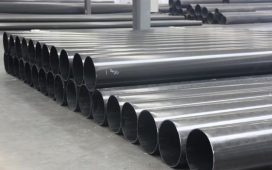When it comes to marketing, businesses have a few different options when it comes to how they want to approach it. One option is to use an in-house agency. This has both pros and cons, which we will explore in this blog post. Let’s start by discussing what marketing is and when it would be most useful for a business. After that, we will look at the different roles marketing agencies can play and how in-house agencies compare to those roles. By the end of this post, you should have a good understanding of whether using an in-house agency is the right decision for your business!
What is marketing for?
Marketing is the process of creating and executing a plan to reach a target audience with a specific message. The goal of marketing is to increase awareness of a product or service, generate leads, or build brand loyalty. Marketing can be used for any stage of the customer journey, from Acquisition (getting new customers) to Engagement (keeping existing customers happy) to Retention (preventing customers from leaving).
There are a few different ways to approach marketing, but one option is to use an in-house agency. In-house agencies are internal teams that handle all aspects of a company’s marketing, from strategy and planning to execution and measurement. This model has both pros and cons, which we will explore in this blog post.
The benefits of using an in-house agency
The main advantage of using an inhouse agency is that it can be more cost-effective than working with an external agency. The reason for the saving in cost is that in-house agencies are already familiar with the company’s culture, products, and services. This means that there is less of a learning curve when it comes to getting started on projects.
In addition, in-house agencies can be more agile than external agencies. They are often able to respond more quickly to changes in the market or in the company’s strategy. This agility can be a major advantage in fast-paced industries or in markets that are constantly changing. This data can be used to inform marketing decisions and make sure that campaigns are targeted to the right audience. In-house agencies also have a better understanding of the company’s brand and can provide more customized services.
Thirdly, in-house agencies can provide more transparency to the company. They can keep track of all the moving parts in a campaign and provide detailed reports on progress and results. This level of transparency is not always possible with external agencies.
The disadvantages of using an in-house agency
Despite the advantages, there are also some disadvantages to using an in-house agency. The first is that in-house agencies can be more expensive to set up and maintain than external agencies. This is because in-house agencies require dedicated staff, office space, and resources. In addition, in-house agencies can be difficult to scale up or down as the needs of the company change.
Another disadvantage of in-house agencies is that they can be less objective than external agencies. This is because in-house agencies are more likely to be influenced by the company’s culture and values. This can lead to bias in decision making and in the advice that is given to the company. In addition, in-house agencies may not have access to the same level of resources and talent as external agencies. This can limit the scope of what they are able to do.
Finally, in-house agencies can be a distraction for the company’s employees. This is because employees may be pulled away from their regular duties to work on marketing projects. This can lead to decreased productivity and lower morale.
So, those are some of the pros and cons of in-house agencies. As you can see, there are advantages and disadvantages to using this type of agency. Before deciding, it is important to weigh all of the factors and decide what is best for your company.







